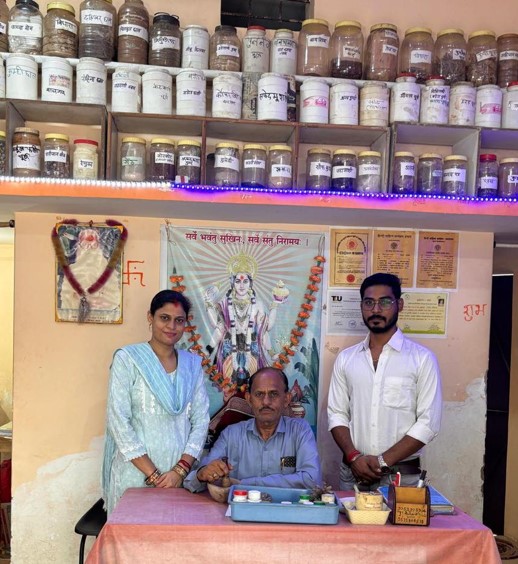A series of sharing inspiring stories of Traditional Community Healthcare Providers who have engaged with TDU.

Dr Megha
Activities, Research interest, Present & Previous projects
Our lab aims to tackle malnutrition through traditional foods and dietary concepts by seeking convergence through two different angles: mechanistic studies using Drosophila melanogaster (italics) and public health nutrition.
We have developed an early life malnutrition model in flies where we study how nutritional stress during development impacts adult gut physiology and function. Further, this model is used for interrogating health benefits of food ingredients such as amla, rice and jackfruit. Through a documentation project on “Traditional Foods of Karnataka” we are compiling traditional knowledge on food dishes and deconstructing them through a nutritional and ayurvedic lens. In an observational study on cancer patients, we are designing diets that combine IDA recommendations and ayurvedic principles, with a goal to assessing their impact on patient wellbeing. We are also looking to develop nutritional supplements to help cancer patients during and after their treatment. Through the Ayurveda Dietetics program we aim to build a cohort of practitioners who can integrate Ayurvedic dietetic principles into clinical practice.
We welcome interns, but a 3-month stay is mandatory. We are also open to collaboration and hosting fellows/grants that align with our mission. People in our group come from biomedical science, nutrition and ayurveda backgrounds. Write to Megha if you are interested in joining us. Be specific about your interests.
Awards, Recognition & Publications
Dietary Phyllanthus emblica L. (Indian gooseberry, Amla) improves fecundity and resistance to oxidative stress in a Drosophila melanogaster model of early-life malnutrition Pallavi Padmaraj, Megha
bioRxiv 2024.12.01.626288; doi: https://doi.org/10.1101/2024.12.01.626288
Breaking silos: can the emerging field of Ayurvedic biology contribute to the advancement of Indian health science
Bhavya Vijay, Gurmeet Singh, Chethala N. Vishnuprasad, Ashwini Godbole, Subrahmanya Kumar Kukkupuni, Megha, Prasan Shankar, Poornima Devkumar and Darshan Shankar
Current Science 2022; 122(3): 251-257 Impact of late larval nutritional stress on adult metabolic, gut and locomotor phenotypes in Drosophila melanogaster
Shri Gouri Patil, Sushmitha Sekhar, Aman Agarwal, TS Oviya, Debashis Rout, Megha
bioRxiv 2022.06.30.498321; doi: https://doi.org/10.1101/2022.06.30.498321 Surviving nutritional deprivation during development: neuronal intracellular calcium signaling is critical
Megha, Gaiti Hasan. Int. J. Dev. Biol. 2020 64: 239 - 246 Neuropeptides required for Drosophila development under nutritional stress are regulated by the ER-Ca2+ sensor STIM Megha*, Christian Wegener and Gaiti Hasan. PLoS One. 2019 Jul 11;14(7):e0219719. *Corresponding author.


.jpg)
.png)